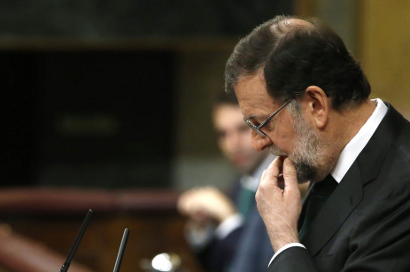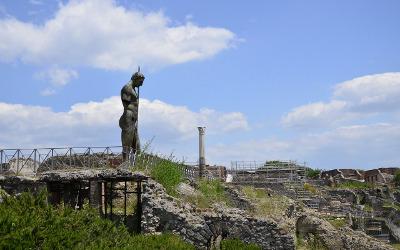Spain’s prime minister loses no-confidence vote: what next?

Mariano Rajoy, the Spanish prime minister, has been forced to resign by his national parliament, which voted by 180 seats to 169 in favour of a motion of no-confidence in his leadership. The vote indicates that the Spanish electorate’s patience with corruption is at an end – and puts the country on an uncertain path at an already difficult moment.
Rajoy had already survived one vote of no confidence, which was tabled in May 2017 by left-wing opposition party Podemos, over the numerous corruption scandals tainting Rajoy’s ruling Popular Party (PP). Rajoy survived the vote largely because no-confidence votes in Spain are “constructive”, meaning confidence in the prime minister can only be withdrawn if there is an absolute majority in favour of a successor – and Podemos’s leader, Pablo Iglesias, was not seen as a viable alternative.
But even though that move failed, Rajoy was too unpopular to be safe. And had this latest vote of no confidence failed, his sheer unpopularity meant he would most likely have faced a third one.
Caught out
The latest no-confidence vote was called by Pedro Sánchez, the leader of the Socialist Party. He tabled it following a long-awaited verdict in the Gurtel corruption case, which involved high-ranking members of the PP. The verdict was damning: Spain’s National Court ruled that the PP had profited from funds obtained illegally through “an authentic and efficient system of institutional corruption”.
The PP’s former treasurer, Luis Barcenas, received a 33-year jail sentence after being convicted of taking bribes, money-laundering and tax crimes. Another 29 officials and businessmen were also convicted of securing bribes for municipal contracts. The businessman at the heart of the corruption scandal, Francisco Correa, was sentenced to 51 years in prison.

Disgraced businessman Francisco Correa. EPA/Fernando Villar
Even more damming for Rajoy personally was that his own testimony was called into question. Judges wrote that what he told the court “does not seem plausible enough to refute the solid existing evidence” about the party’s slush fund.
Spaniards were once happy to turn a blind eye to corruption; it seemed a normal part of both daily and political life. But things have changed. In 2011, they didn’t even rank corruption and fraud as one of Spain’s top seven problems – but according to monthly opinion poll barometers, since 2013, they now regularly identify it as the second most pressing issue after unemployment.
Rajoy’s popularity has long been slipping in the polls. In January 2018, his approval dipped to 27%. Albert Rivera, leader of the centre-right Ciudadanos was at that time polling at 54% and Sánchez 33%. Even among his own voters, Rajoy’s approval rating stood at 73%, lower than Rivera’s 81%.
The vote of no confidence was therefore a perfect opportunity for rival parties to jostle for position.
How the vote was won
To pass, Sánchez’s no-confidence motion needed to muster an absolute majority of 176 votes, but Socialist Party only holds 84 seats. Early on in the process, Pedro Sánchez managed to secure the support of Podemos, bringing along a further 67 seats; the left-wing Republican Catalan party (ERC) also agreed to support the no-confidence vote with its nine votes – while other smaller nationalist formations Compromís (four seats) and Nueva Canarias (one seat) also lent their support. This brought the no-confidence total to 165.
On the other side were the PP’s 134 seats. Ciudadanos, with its 32 seats, refused to vote Sánchez’s motion, but would have supported a different motion that would put in place a technocrat government to immediately call new elections. Also against were smaller groups traditionally allied with the PP, such as the UPN (two seats) and Foro Asturias (one seat). This took the final vote against the motion to 169. Suprisingly, Coalición Canaria (one seat), normally a PP ally, decided to abstain.
As is often the case in Spain’s parliament, the balance of power was left in the hands of the small nationalist parties. In this case, the three decisive blocs were the National Basque Party (PNV, five seats), the left-wing, nationalist Basque Eh Bildu (two seats) and the Catalan European Democratic Party (PDeCAT, eight seats).

Balance of power: the Spanish parliament. EPA/Emilio Naranjo
The PNV was keen to avoid an early elections given that the most likely victor would be Ciudadanos, which has pursued a hard line against Catalan separatism and suggested rolling back some of the financial powers enjoyed by the Basque Country. It’s also anxious to safeguard the recently approved budget, which allocates €540m for infrastructure investment in the Basque Country.
But once other nationalist parties supported the no-confidence vote, the pressure on the PNV simply became too intense. The fact that Podemos had announced it would present another no-confidence vote if the Socialist initiative had failed, which in turn would have raised the prospect of an election, only added to the pressure.
The PDeCAT decided to support the motion after hearing Sánchez’s speech in the plenary, in which much was made of the desire to open a dialogue with the Catalan Government. Eh Bildu supported the desire to remove Rajoy but were not convinced Pedro Sánchez represents the necessary break with the current political regime. Ultimately they justified their support of the motion as a rejection of the PP rather than a vote for the Socialists.
Now what?
Spanish citizens are increasingly impatient with the current political situation – and this parliamentary vote will only pile on more pressure. Yet the range of possible electoral outcomes does not present easy solutions to the current problems facing Spain – in particular, the Catalan question.
 Ciudadanos might be the most popular political formation at the moment, but if it came to power it would immediately come up against the hostility of the Basque and Catalan nationalists. And even if the Socialists won an election – unlikely at the moment – they would still have to contend with the Catalan question. Since they’ve largely supported the PP’s approach since the independence referendum, that wouldn’t be easy. Rajoy might have been toppled, but there’s no easy road ahead for any party.
Ciudadanos might be the most popular political formation at the moment, but if it came to power it would immediately come up against the hostility of the Basque and Catalan nationalists. And even if the Socialists won an election – unlikely at the moment – they would still have to contend with the Catalan question. Since they’ve largely supported the PP’s approach since the independence referendum, that wouldn’t be easy. Rajoy might have been toppled, but there’s no easy road ahead for any party.
Georgina Blakeley, Senior Lecturer in Politics, The Open University.
This article was originally published on The Conversation. Read the original article.
Contact our news team
For all out of hours enquiries, please telephone +44 (0)7901 515891
Contact detailsNews & articles
Quarterly Review of Research
Read our Quarterly Review of Research to learn about our latest quality academic output.

